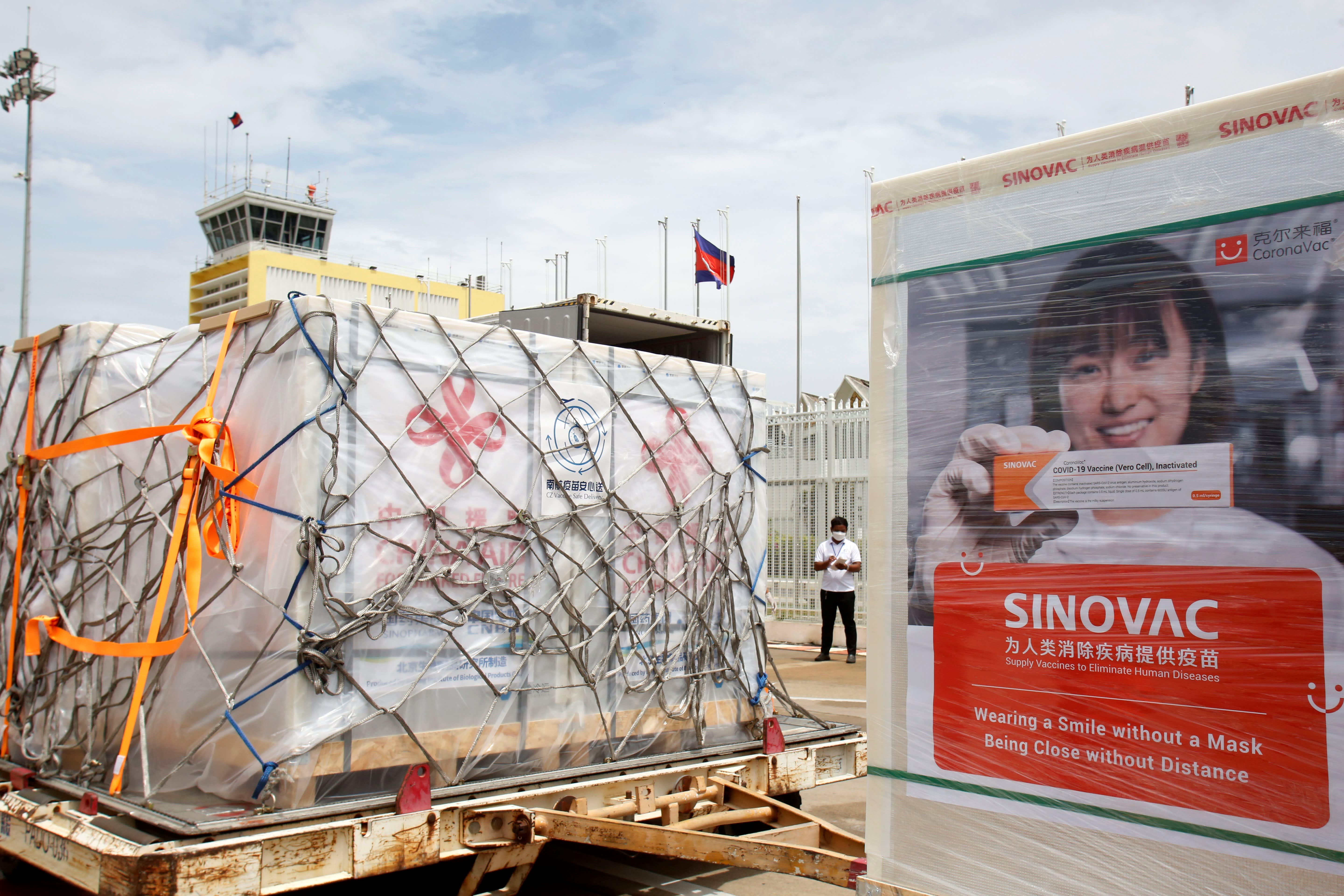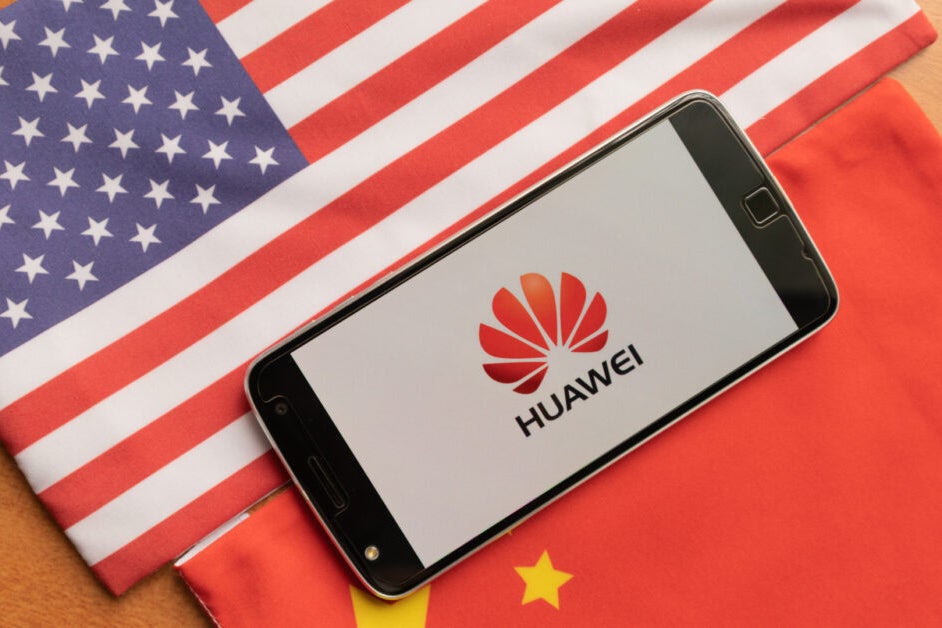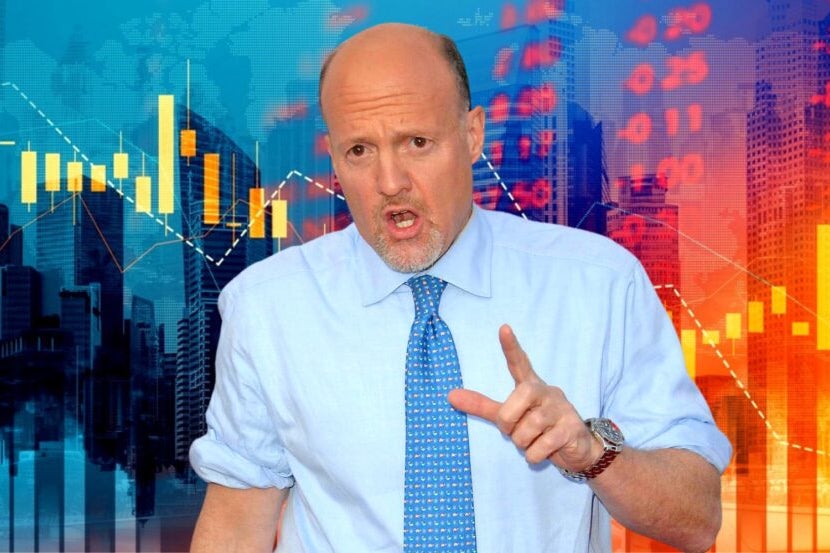On June 8, 2021, Chinese enterprises Sinopharm (left) and Sinovac delivered Covid-19 vaccines to Cambodia’s Phnom Penh International Airport. Getty Images | Sovannara | Xinhua News Agency According to a CNBC investigation, most nations with high immunization rates and high incidences of Covid-19 infection rely on vaccines made in China. The findings come as the efficacy of Chinese vaccines is being questioned, with a paucity of evidence on their protection against the more transmissible delta form compounding the problem. Weekly Covid instances have remained elevated, adjusted for population, in at least six of the world’s most vaccinated countries, according to CNBC, with five of them relying on Chinese vaccines. As of July 6, CNBC identified 36 nations with more than 1,000 weekly new confirmed cases per million people, based on data from Our World in Data, which gathers data from sources such as the World Health Organization, governments, and University of Oxford researchers. CNBC then identified 36 nations where at least 60% of the population has received at least one dose of the Covid vaccination. United Arab Emirates, Seychelles, Mongolia, Uruguay, and Chile are among the six countries that employ Chinese vaccines as a substantial part of their national vaccination programs. The United Kingdom is the only one of them that does not rely on Chinese immunizations. Mongolian state-owned news agency Montsame stated in May that China’s state-owned Sinopharm had delivered 2.3 million vaccination doses to the country. Mongolia had received approximately 255,000 doses of Pfizer-BioNTech shot and 80,000 doses of Russia’s Sputnik V as of last week. According to Reuters, Chile provided 16.8 million doses of Sinovac Biotech vaccines, compared to 3.9 million doses of Pfizer-BioNTech and lower amounts of two other vaccines. At the start of their immunization programs, the UAE and Seychelles relied primarily on the Sinopharm vaccine, but both have recently switched to different vaccines. Sinovac’s shot, along with Pfizer- BioNTech’s, is one of the two most widely used vaccinations in Uruguay. In the meantime, vaccines from Moderna, AstraZeneca-Oxford, Pfizer-BioNTech, and Janssen have been approved in the United Kingdom. Covid cases in the United Kingdom have increased in recent weeks as the more transmissible delta strain has spread. CNBC reached out to Sinopharm and Sinovac for comment, but neither company responded. A spike in Covid cases in nations with high immunization rates might be caused by a number of factors. Vaccines do not provide 100 percent protection, therefore even those who have been immunized can become infected. New coronavirus strains, on the other hand, may be stronger at evading immunizations. For many countries, this is the best option. Epidemiologists advise countries should not cease using Covid-19 vaccines from China, especially when vaccine supplies in low- and middle-income countries are limited. Many of the countries and territories that have approved Sinopharm and Sinovac vaccines are developing countries that are unable to compete with wealthier countries for vaccines developed in the United States and Europe. Countries may choose to utilize specific vaccines based on their long-term goals, according to Ben Cowling, a professor at The University of Hong Kong’s School of Public Health. In an email to CNBC, Cowling, who heads the school’s epidemiology and biostatistics division, said, “Some countries may accept a low level of circulation as long as there are relatively few severe cases and deaths from COVID-19.” “Any of the available vaccinations should be able to achieve that level of coverage.” Despite this, several countries are avoiding China’s vaccines. Costa Rica rejected a shipment of Sinovac vaccines last month after determining that they were ineffective. Approval by the WHO Sinopharm and Sinovac vaccines have been certified for emergency use by the World Health Organization. The two Chinese vaccines’ efficacy is lower than that of Pfizer-BioNTech and Moderna, both of which have shown efficacy of above 90%. According to the WHO, Sinopharm’s vaccine has a 79 percent efficacy against symptomatic Covid infections, although its usefulness in some categories, such as those 60 and older, is unknown. Depending on the country where studies were conducted, the efficacy of Sinovac’s shot ranged from roughly 50% to more than 80%. Clinical study data cannot be easily compared, according to experts, because each trial is set up differently. According to the South China Morning Post, a Hong Kong study found “significantly greater” antibody levels in persons who received the BioNTech shot compared to those who received the Sinovac vaccine. Some researchers believe that the technology behind the various Covid vaccinations may account for differences in their effectiveness. The vaccines developed by Sinopharm and Sinovac elicit an immune response by exposing the body to a weakened or “inactivated” virus, a tried-and-true strategy employed by vaccinations for decades. The vaccines developed by Pfizer-BioNTech and Moderna were based on a technology known as messenger RNA, which tells the body to generate viral proteins that trigger an immune response. In an article published on The Conversation website, Michael Head, a senior research fellow in global health at the University of Southampton in the United Kingdom, wrote, “Inactivated vaccines are easy to manufacture and are known for their safety, but they tend to produce a weaker immune response compared to some other vaccine types.” Despite this, Cowling claims that major phase three clinical trials have shown that inactivated vaccines have “great efficacy against severe sickness and death” caused by Covid. According to CNBC, Covid outbreaks in nations that employ Chinese vaccines “tend to be increases in mild infections with very few severe cases in completely vaccinated persons.” ‘Herd immunity’ is a term used to describe the ability of a group When vaccinations are less effective, more people must be vaccinated in order to achieve “herd immunity.” This occurs when the virus can no longer spread quickly because most people have been vaccinated or have recovered from an infection. Early in the pandemic, some countries opted to try to achieve herd immunity, but no country is known to have succeeded. Some countries that claimed to have achieved herd immunity, like as Sweden, were impacted more harder by Covid than adjacent countries that opted for vaccination. According to a study conducted by the Kirby Institute at the University of New South Wales in Sydney, herd immunity might be obtained in the Australian state of New South Wales if 66 percent of the population received vaccines that were 90 percent effective against all infections. According to the study, if vaccine efficacy is 70%, the proportion of the population that needs to be vaccinated climbs to 86 percent, and herd immunity is impossible to achieve if vaccine efficacy is less than 60%./n
Read MoreSix vaccinated countries have high Covid infection rates. Five of them rely on Chinese vaccines
2021-07-08T01:54:54-04:00July 8th, 2021|





